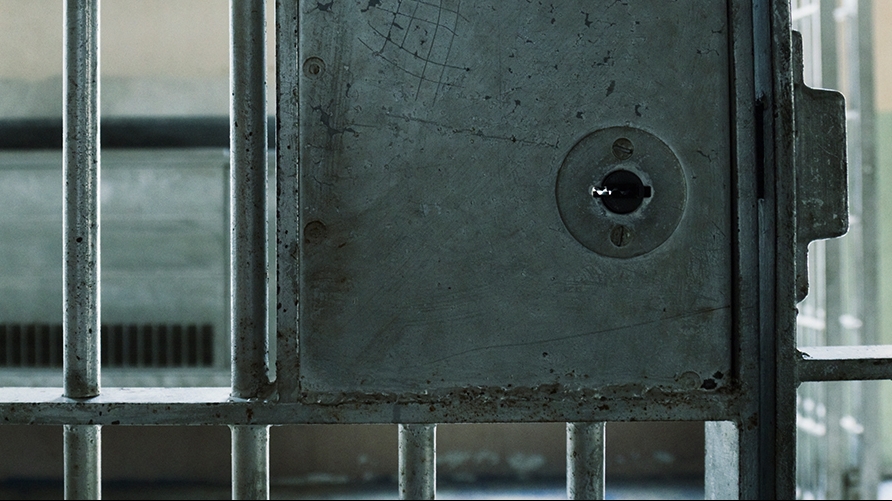By Brandon Moseley
Alabama Political Reporter
Tuesday, Americans for Tax Reform hosted a presentation on Juvenile Justice Reform. ATR’s Jorge Marin argues that out-of-home placements for youth in the juvenile justice system cost taxpayers up to $162,000 per youth per year. Jorge Marin and ATR argue that these kinds of expenditures could be better applied to situations that will keep communities safe and help kids avoid becoming career criminals.
After the 2017 legislative session, the Juvenile Justice Task Force, chaired by State Senator Cam Ward, R-Alabaster, and State Representative Jim Hill, R-Odenville, studied how to best reform the state’s juvenile justice system. Hill and Ward are the chairs of the House and Senate Judiciary Committees.
House Bill 225, introduced by Chairman Hill in December, aims to codify the recommendations of the Alabama Juvenile Justice Task Force. Proponents claim that if enacted, Alabama would save $34 million by 2023 to reinvest in community-based juvenile programming shown to reduce the likelihood of reoffending.
Sen. Ward said that as an advocate for smaller government one of our foremost concerns should be public safety. How to solve crime problems with youthful offenders before they get to the adult side was the focus of the Juvenile Justice Task Force.
“Texas and Georgia have seen their juvenile crime drop,” after implementing reform, said Sen. Ward. “If a 14 year old is in a bad home, address that. If a child is drug or alcohol addicted, get them into a drug treatment program before they become hardened criminals.”
Chairman Hill said one thing that is easy to lose sight of is that after a juvenile is locked up for 15 months, “where is he going to live? He is coming back home. Is he coming back home to the same problems that he left?”
“What is the easiest way to deal with a juvenile?” Chairman Hill asked. “In a local environment, where hopefully you are interacting with the adults in the home and the younger children in the home. We have 67 counties and 67 different approaches.”
Chairman Ward said that this bill, “Is an ongoing negotiation in process because all of the stakeholders. Two thirds of the folks at DYS (Department of Youth Services are in there for non-violent offenses. Statistics show that if you lock up a juvenile, they are going to be an adult in the prison system.”
Dealing with youth offenders in a local program, “Is a lot cheaper than the $140,000 a year to lock up a juvenile,” said Ward. He also said that they want to prepare a risk assessment tool to give to a judge for every child that provides guidance to the juvenile court judge on what is the best approach to take with each child. “That guidance would be good from one end of the state to another. We do need to makes sure that we are treating the child in Madison County and the child in Mobile county. The first thing we have to deal with is to deal with their drug assessment.”
“The real problem is that Madison County and Shelby county they have the local resources for treatment Bibb and Chilton are also in my district, and they don’t have the local resources to offer alternative treatment,” Ward said. “We need to add money for that in the DYS budget.” This bill would shift money from the incarceration side to the local side to offer programs including: family therapy, mentoring and substance abuse treatment.
“Every one of your counties have juvenile probation officers,” Ward said. “They are doing things to keep up with these kids. We have drug treatment in our county; we have early warning in our county to identify students with problems with truancy or probation. Two things that are important: Education, we must educate our children. The second is we need to do our best to keep our children off of alcohol and substance abuse. Those are the things that we have to deal with. When a child graduates from high school, we hope that he will: enroll, employ, or enlist. If they enroll in school, they are bettering themselves, if they go to work, they are bettering themselves, if they enlist in the armed forces, they are learning new skills and are bettering themselves.”
“Locally is the place to deal with juveniles,” Ward said. “18 or 19 states have enacted juvenile justice reform. Three states would be the guide are: Texas, Georgia and North Carolina.”
On why red states are more likely to introduce juvenile justice reform than blue states, Ward said, “We bludgeoned the other side so bad that they were soft on crime, that they are relocating to take that up.”
Chairman Hill said that he was a district court judge when we got the sentencing guidelines for adults with a recommendation for prison or not for prison: probation or not for probation, and the numbers that we were sending to prisons dropped noticeably. It has has dropped 20 percent.
The Alabama Political Reporter asked: “This was before your time; but earlier generations of Alabamians dealt with the mentally ill by locking them up in sanitariums. Then there was a movement to stop locking up the mentally ill. Instead, we would treat them in community centers offering out patient mental health services. That might actually be a good thing; but then we cut the funding for those services. Now we have crazy people all over the place in our communities running around and getting in trouble, until they commit some offense so serious that they get sent to the prison system. Are you sure that the same thing won’t happen with this?”
Sen. Ward answered, “You have got to pay for it. The key is having treatment programs, but you have got to invest in it. My brother is bipolar. He has been in and out of jail, costing taxpayers no telling how much money. He did not take his medication. If we had gotten him the treatment he needed, he probably would be a productive member of society. If we invest is these services, there will be better outcomes for young people and it will be a whole lot cheaper than what we are doing now.”
Rep. Hill said that he introduced the original bill in December, and that is not going to be the final draft. “It has to be looked at the various entities: the Das, the judges, the sheriffs, the Governor’s office. Will we get it through this year? We will try. If we don’t, I am committed to try again next year. I am committed to moving this forward whether it takes a year or two years. I would rather do it right than do it and get it wrong.”
Ward said, “I don’t want to see us pass something called reform and then have to spend the next three years going back and fixing things with it because of unintended consequences.”























































